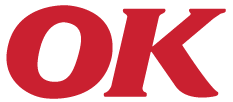Safety and the environment
The safety of people and their environment is a first priority for Catom in all of its activities. Catom attaches great value to full compliance with all requirements in the areas of safety, quality and the environment. Catom has its own environmental and safety policy for this.
Blending biofuels
It goes without saying that Catom complies with the statutory blending obligations with respect to biofuels; in 2022 17.90% (2021: 17.50%). Catom seeks to strictly use second generation (‘double-counting’) biofuels for this purpose, thus surpassing the legal requirements.
Reduction Energy Consumption
In 2022 Catom took significant steps towards the reduction of its energy consumption and the related emissions. We have continued to focus on route planning transport volumes and motor fuels volumes loaded, inter alia by using remotely readable volume measuring systems. The transported volume increased by 2.7% in 2022 and the average deposited volume increased by 3.9% (including the outsourced volume). In 2022 a further analysis of the vehicle fleet was made, which has resulted in an investment plan. This plan will be continued in 2023. We managed to maintain the fuel savings of 3.6% per kilometre in 2022, as was the case in 2021. As OK retail is growing, there is a lot of construction and sometimes reconstruction going on. The environment aspects are always included in the plans from the very start. The heating of shops is going from gas to electricity, using the air conditioning system as heating source. All lights are being replaced by LED and we are inspecting all cooling installations and replacing them while applying better coolants. Ovens are being replaced by new versions that are more energy-efficient. The Middelburg petrol station, built in 2016, may serve as an example of these efforts. It has been designed and completed as an energyneutral installation and it includes a charging station for electric cars. The outside area of the petrol station has also been designed in accordance with sustainable measures, such as energy-efficient lighting and pumps. The range of products offered also has an important role: AD-Blue has been made available in many stations, as well as modern diesel, the OK Xdrive with is CO2 neutral.
Sustainable Fuels
For customers wishing to implement a responsible policy in terms of the environmental impact of fuels, Catom has introduced GTL (Gas To Liquid). This is an advanced diesel fuel that produces less smell and noise and thus reduces the emission of fine particles. Since GTL is free from sulphur and aromatics and has a high octane content, it leads to cleaner combustion. Catom has thus gained a unique proposition. Also HVO fuel is more in demand by our customers. HVO fuel is fossil-free, biodegradable, it reduces the emission of particulates and has a sulphur emission of almost 0 grams/km. HVO can be obtained in various blend ratios with diesel. If 100% HVO fuel is used, the reduction of CO2 emissions may be reduced to up to 89% in the who chain. Both products are especially suitable for large cities seeking to enhance air quality in the city centre.
ISO14001 standard 2015 (environmental management system) and VCA*
In August 2022 we successfully completed the recertification process of ISO 14001 and VCA at the new standard (2017), and we have now new VCA* and ISO 14001 certificates: 2015 in the name of OK Oliecentrale B.V. All mandatory internal and external audits were carried out in 2022, including the external BRZO+, WABO and ISCC audits (regarding the storage, transport and blending of biofuels).
RI&E
The RI&E we carried out in May 2022 was approved by an external certified company. In June 2022 we received a final report, carried out by a certified company. The major conclusion of the report was that, company-wide, buildings have proper insulation and that most of the recognised measures have been taken or will be taken shortly.In 2022, 1 environmental incident occurred and 1 incidents leading to injury, with a total number of deliveries amounting to 104,068 (96,895 of which with own trucks).






